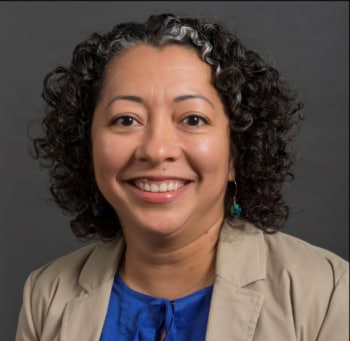What's New

Drs. Barbara Baquero (pictured) & Natoshia Askelson, Co- Investigators, University of Iowa PRC
Q: Can you tell us about Active Ottumwa and how this project helps community members be more physically active?
A: Ottumwa community members and the University of Iowa PRC used the latest research to design this project. Active Ottumwa works with volunteer community members who are trained to be Physical Activity Leaders (PALs). They guide and support adults to be more physically active. Active Ottumwa is for everyone in Ottumwa and is fun and free. So far, PALS have led over 800 activity groups. Community members can pick the activities, times, and locations that work for them. Learn more about Active Ottumwa and the University of Iowa, PRC.external icon

Colorectal cancer is the second leading cause of cancer-related deaths in the United States. It is the third most common cancer in men and in women. Researchers from five CDC-funded academic institutions, known as Prevention Research Centers (PRC), are tackling the problem head-on. In communities experiencing health disparities from rural Appalachia to San Francisco, studies are underway to prevent colon cancer by increasing screenings for the disease.
At the University of Kentucky PRC external iconresearchers are encouraging the widespread use of mail-in screening kits. Learn more about research other PRCs are conducting.
- University of California, San Francisco PRC —external iconPrevention research to increase colon cancer screening for Chinese-Americans.
- University of California, San Francisco PRC—external iconBenefits of mail-in cancer screening kits in partnership with the San Francisco Department of Public Health
- University of California, San Francisco PRCexternal icon—Prevention research testing the effect of using media materials and mailed patient reminders on the rate of screening for colorectal cancer among Chinese Americans.
- University of Iowa PRC—external iconPrevention research to help all eligible adults in the U.S. be screened
- University of New York/City University of New York PRC—external iconPrevention research to encourage colon cancer screening among older Black men
- University of Pennsylvania PRC—external iconColon cancer screening for low-income patients

A network of five CDC Prevention Research Centers (PRC) are testing programs and policies to improve access to healthy foods in low-income communities. The University of California, San Francisco PRCexternal icon, for example, is working with on-site staff at food panties and food banks to develop and evaluate tools that measure their customers’ intake of healthy foods.
The Nutrition and Obesity Policy Research and Evaluation Network (NOPREN)external icon works together to build evidence for healthier food and beverage policies aimed at preventing chronic diseases such as obesity.
Learn more about the research NOPREN PRCs external iconare conducting.
- Johns Hopkins University PRC—external iconResearches the expansion of the Baltimore low-income food environment model, which assesses how children 10- to 14-years interact with their food environments including at schools, recreation centers, and food outlets.
- University of Illinois, Chicago PRC—external iconAssesses the impact of the Healthy Food Financing Initiative on the availability, pricing, and marketing of healthy and unhealthy foods in underserved areas.
- University of Minnesota PRC—external iconEvaluates the impact of a local policy change that established minimum stocking criteria for healthy foods as a requirement of grocery store licensing.
- University of New Mexico, PRC—external iconHelps to prevent childhood obesity in primarily Hispanic and American Indian communities, the University of New Mexico, PRC is evaluating healthier food and beverage policies in early childcare and education settings.